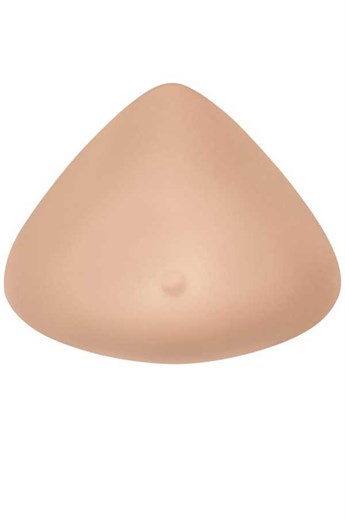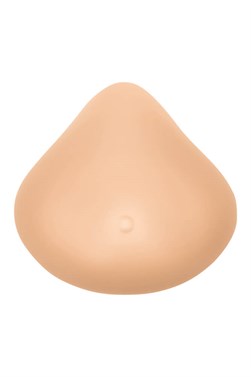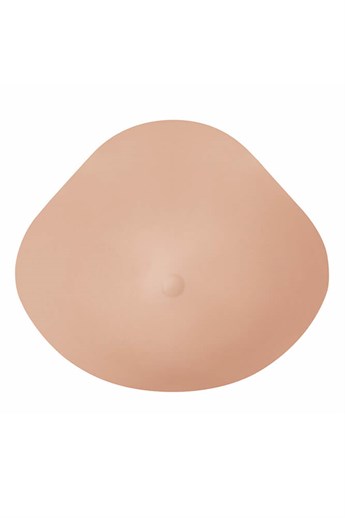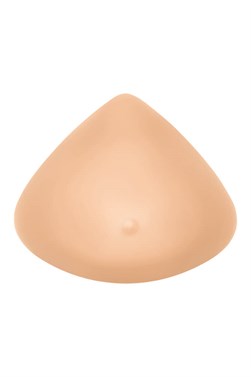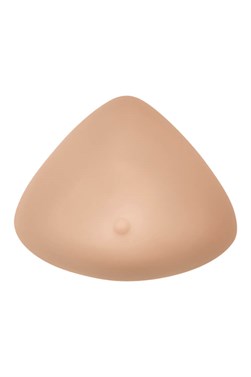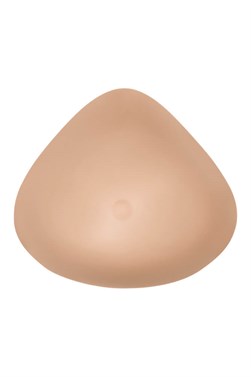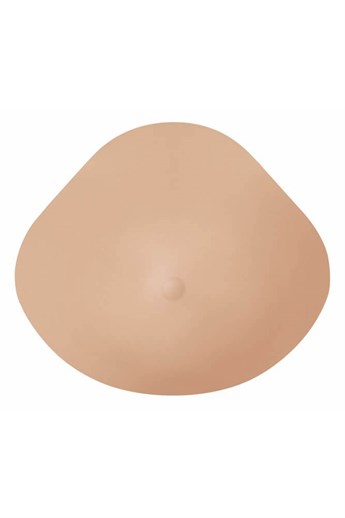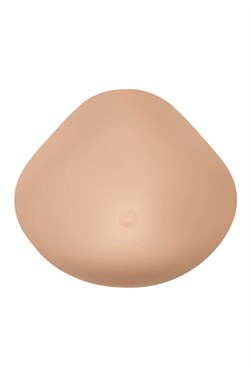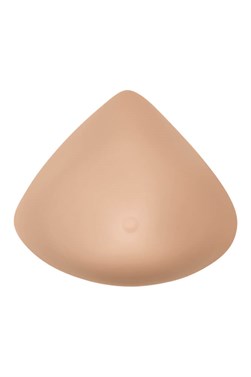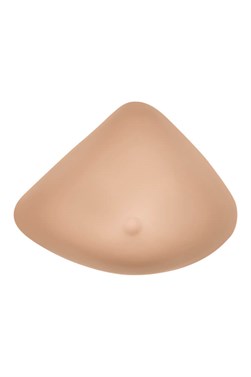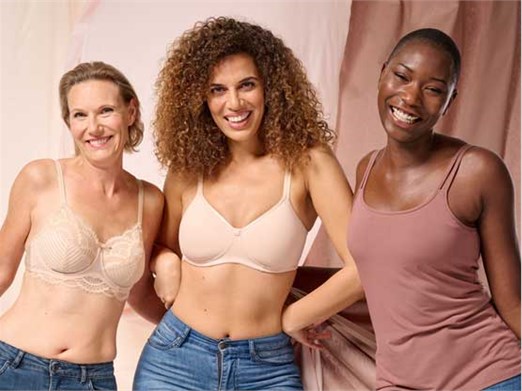Breast Form Evolution
The history of Amoena breast forms
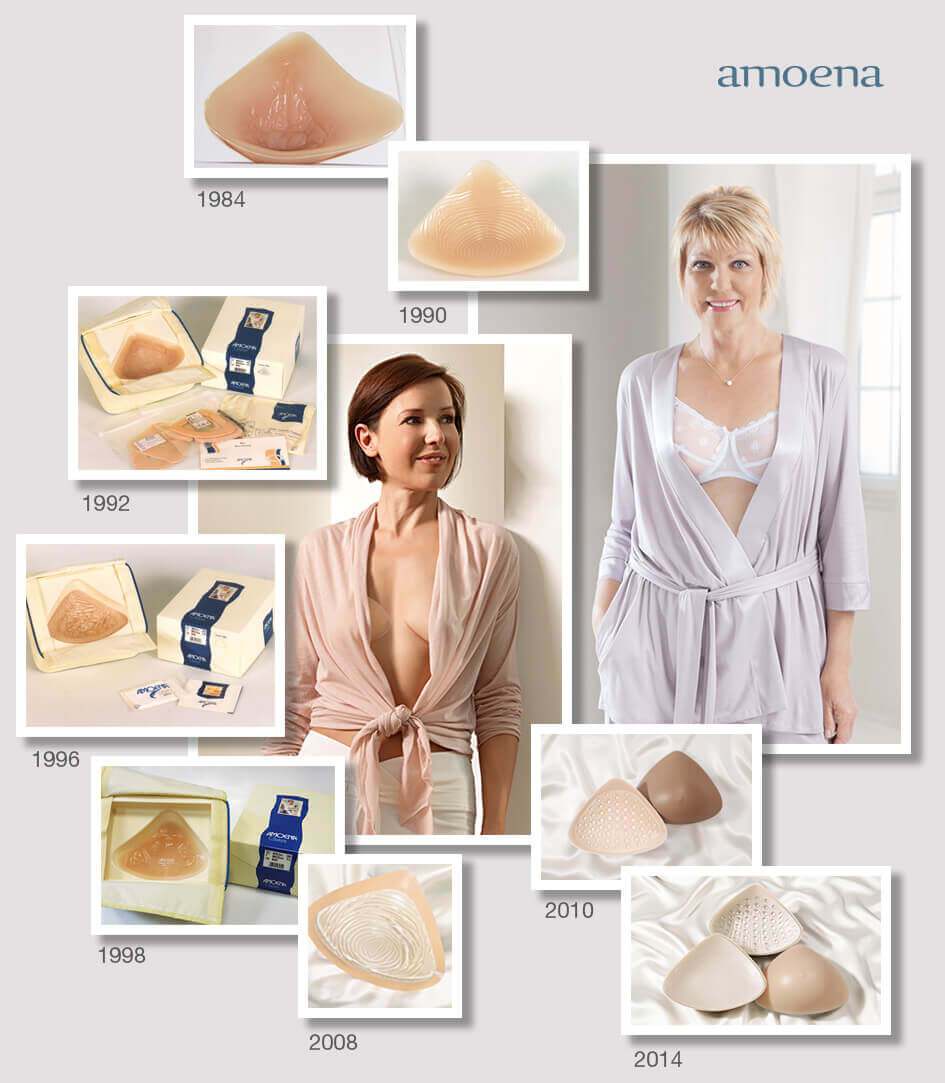
Amoena has registered over 25 patent families and has a history rich in growth, technological advancements and diversification.
Here are just some of the highlights from the last 40 years:
- 1975 First silicone breast form
- 1984 Two-layer breast forms
- 1988 Flowable gel back layer breast forms
- 1990 First triangle shape breast form
- 1992 First generation of attachable breast forms
- 1996 Lightweight silicone breast forms
- 1998 First breast form with
integrated adhesive layer - 2001 Mouldable back layer breast forms
- 2004 Tawny colour lightweight breast forms
- 2005 Climate breast forms
- 2008 Comfort+ technology breast forms
- 2010 Energy breast forms
- 2014 Cosmetic breast forms
A bumpy start for breast forms
Breast form technology has come a long way over the years. At the beginning of the last century, breast prostheses didn't even exist. Women either went without or made their own using whatever materials they could find, often stuffing a hand-sewn bag with cotton wool or old rags.
1940's & 1950's
Proprietary breast forms did not come into existence until the 1940's, with the invention of the surgical bra. Pads’ were included in the cups of these bras to replace the missing breast. These were replaced in the 1950's by a rubber breast form invented by Dunlop which, according to one wearer, "look reasonably good, but feel unpleasant because they are
The next development was an inflatable prosthesis which seemed like a good idea but was beset by practical difficulties. Inevitably, they had an unfortunate habit of deflating – sometimes noisily – at any time. The opposite problem could be experienced by air
Many women still remember the so-called ‘bird seed’ breast forms, which were actually filled with tiny glass beads. While they were fairly easy to adjust if women gained or lost weight they still didn’t adequately compensate for either natural feel or appearance because they did not move with the body.
1960's & 1970's
Things got a little better in the early 1960's when the liquid-filled breast form was invented. These not only looked like a real breast but moved naturally as well. They became the standard breast form of choice, until a young Bavarian plastics engineering student, Cornelius Rechenberg, started working in a corsetry factory that also made breast prostheses.
Convinced that with the use of different materials and modern technology, something far better could be produced, Cornelius began experimenting using the unlikely combination of wallpaper paste and polythene bags. After much trial and error, the first silicone breast form was born. In 1975 he started his own company, and the Amoena breast form was born.
Breast prosthesis technology today
Today, Amoena’s research and development team continues to work in close consultation with women who have had breast surgery, to find out exactly what they do and don’t like about the products available to them.
This has seen the introduction of many new concepts, including the lighter weight breast form and innovative two-layer forms, which have liquid silicone at the back for added comfort.
Thanks to Amoena’s technical ingenuity, more ground-breaking new concepts were to come, like the revolutionary Contact self-adhesive breast form that adheres directly to a woman’s chest wall, behaving just like a part of her own body, and the incorporation of Comfort+ technology into the Energy breast form for example, which helps regulate the temperature between the breast form and the chest wall – ideal for women suffering from hot flashes caused by menopause or hormonal treatment.
Looking ahead
As women’s lifestyles become more active and as their needs evolve, Amoena is committed to continuing to develop products that meet their needs. New surgical techniques are also being introduced, which in turn influence the development of breast forms and the technology behind them.



















